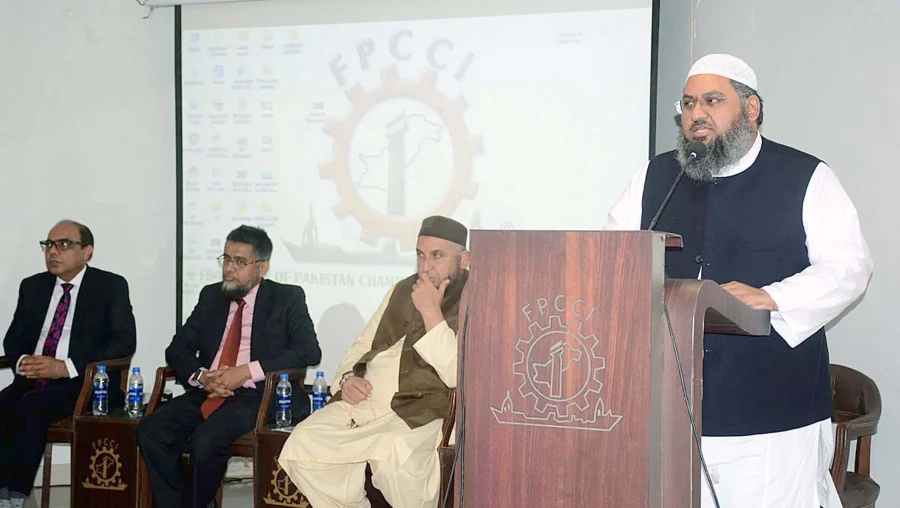Religious scholars and experts on the economy termed the Islamic financial system as a solution to the economic problems of Pakistan and stressed the need for legislation and academic research on conversion of the traditional financial system into an interest-free economy.
The thoughts were expressed in a seminar on Islamic Finance organised by the Federation of Pakistan Chambers of Commerce and Industry on the other day.
Chairman Shariah Advisory Committee State Bank of Pakistan, Mufti Dr Irshad Ahmed Aijaz, said that the remarkable success and exponential growth of Islamic financial system around the world has negated the perception that financial systems could not work without interest.
The decision of the Federal Shariat Court on interest was a significant decision that provide answers to all questions on the subject, he said adding that share of Islamic banking in the overall banking sector has surpassed 20% while Pakistan would be the first country in the world heading to conversion of financial system on such a large scale.
All the stakeholders in Pakistan including the bankers and business community have a consensus over conversion to an Islamic financial system, he said and stressed the need for legislation and academic research on the subject along with coordination among stakeholders and unanimity of efforts for the purpose.
CEO of Macro Economic Insights and former adviser to Ministry of Finance Sakib Sherani said that boo-bust cycles, overconsumption and reliance on debt were 3 characteristics of Pakistan’s economic performance.
He was of the opinion that the Islamic Financial system has distinct advantages as it is stable, avoids boom-bust cycles and has distributive justice. Islamic finance would be more environmentally sustainable because it is not focused only on wants, he added.
Mufti Muhammad Najeeb Khan, a member of Shariah Board Summit Bank Limited noted that principles of Islamic finance had already been adopted in insurance, financing and saving certificates.
He said that Faisal Bank completely converted into an Islamic bank while other conventional banks were also considering their conversion into the Shariah-compliant system.
He suggested FPCCI establish a help desk to assist and guide those businessmen who wanted to convert from conventional to Islamic mode of banking. He further suggested workout modalities focusing youth and agriculture sector and academic research on the adoption of Islamic Finance. —APP










